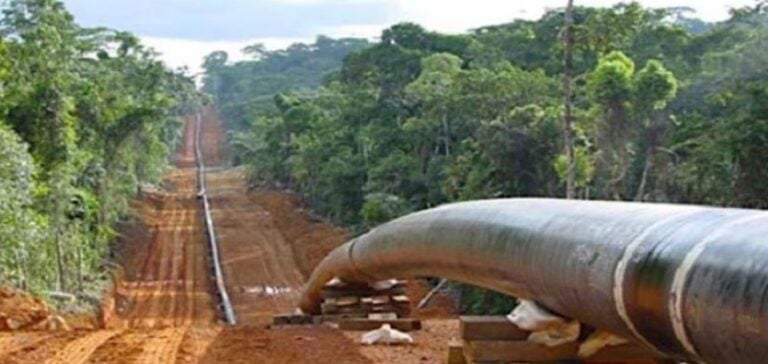A rebel group in Niger, the FPL (Front Patriotique de Libération), has claimed responsibility for sabotaging a crucial section of the oil pipeline linking Agadem to the port of Sèmè-Kpodji in Benin. This act marks a significant escalation in the already high tensions between the military regime in Niamey and the rebels since the overthrow of President Mohamed Bazoum in July 2023. The nearly 2,000 km pipeline, essential to the economies of both countries, is operated by CNPC (China National Petroleum Corporation) and the Chinese company Wapco. The sabotage, announced by the FPL in a communiqué signed by its president Mahamoud Sallah, came as a “first warning” to the Nigerien military authorities.
Economic and political impact
The interruption of the pipeline could have severe economic consequences. Niger and Benin are heavily dependent on the revenues generated by the oil transported via this pipeline. The FPL is calling for the cancellation of a $400 million loan promised to the Niamey putschists by a “Chinese partner”, on pain of further attacks on oil infrastructures. In addition to the actions of the LPF, other forms of violence threaten the pipeline. On June 12, six Nigerien soldiers guarding the pipeline were killed by armed bandits in southern Niger, illustrating the vulnerability of this strategic infrastructure.
Regional tensions
Relations between Niger and Benin have become increasingly tense since the coup d’état in July. Niger, subject to regional sanctions, still refuses to reopen its border with Benin. The Nigerien authorities accuse Benin of harboring French military bases designed to destabilize Niger, accusations which Paris and Cotonou firmly deny. This situation has been exacerbated by the conviction by the Beninese courts of three Niger nationals for “usurpation of title and use of falsified computer data”. Following these arrests, the military regime in Niger cut off the pipeline, further aggravating tensions.
Consequences and outlook
Deteriorating bilateral relations and repeated attacks on the pipeline pose a serious threat to the region’s economic stability. Benin president Patrice Talon insists on reopening the border to allow oil exports to continue, but the outlook remains uncertain.
The next few months will be crucial for the region, as a peaceful solution seems a long way off. The sabotage of the pipeline by the FPL could be the first in a series of attacks aimed at forcing the hand of the military regime in Niamey. The situation calls for increased international attention to avoid wider destabilization of the region.






















